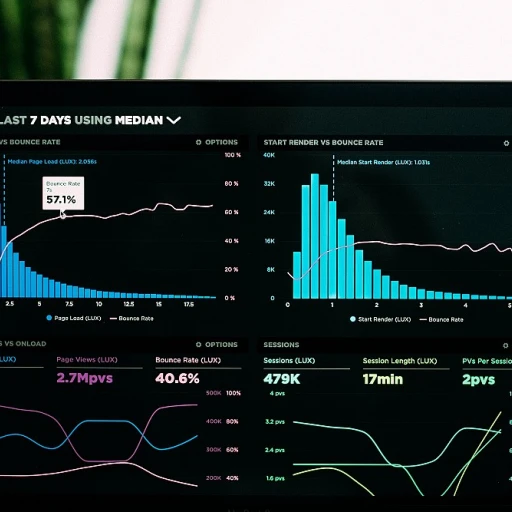
Understanding the Ethical Landscape of AI in SEO
Moral Considerations in AI-driven SEO Strategies
The integration of Artificial Intelligence (AI) in Search Engine Optimization (SEO) has been a game-changer, providing unparalleled insights and automation capabilities. However, with great power comes great responsibility. Ethical AI in SEO requires a nuanced understanding of how technologies can be aligned with moral principles to foster fair and trustworthy SEO practices. By leveraging AI, SEO specialists can unveil patterns, predict user behavior, and automate tasks, yet they must navigate the integrity in algorithms, ensuring transparent and ethical application.
Guardrails for Ethically Responsible AI in SEO
As AI becomes more influential in shaping online visibility, setting ethical guardrails is paramount. This involves critical thinking about how AI algorithms are designed and the potential biases they may harbor. Ethical AI should advance accessibility and diversity, promoting a wide array of perspectives rather than narrowing the information ecosystem. Moreover, it should eschew manipulative tactics that could mislead search engine users, ensuring that the pursuit of high rankings does not compromise the authenticity and relevance of search results.
Collaborative Efforts Towards Ethical Norms
Establishing ethical norms in AI for SEO is not a solitary endeavor. It requires collaboration among stakeholders — from developers and SEO professionals to policy makers and users. One critical aspect is developing guidelines that are not only theoretically sound but also practically enforceable. These guidelines should be the cornerstone of SEO strategies, ensuring that AI tools are used to enhance user experience and reward quality content, all while steering clear of ethically dubious practices.
Transparency: The Cornerstone of Ethical AI for SEO
Transparency in AI systems is a vital component of ethical SEO practices. Revealing the workings behind AI-driven decisions helps in building trust and accountability. It involves clearly communicating the purpose, mechanisms, and the impact of AI implementations on search results. As AI becomes more complex, the demand for transparency is likely to grow, necessitating SEO practitioners to provide clear explanations of their AI-driven methodologies to their stakeholders.
The Risks of AI Technology in SEO: A Cautious Approach
Grasping the Complexities of AI Bias in Search Algorithms
The integration of AI technology into SEO practices has the potential to streamline processes and deliver more accurate results. However, the rise in algorithmic decision-making has given way to concerns around AI bias and its implications on search engine rankings. Search algorithms rely heavily on data, but if the data is skewed, the AI systems may inadvertently perpetuate existing prejudices. Biased search results could shape public perception and potentially harm the visibility of underrepresented groups or viewpoints. Understanding and mitigating AI bias is crucial in fostering an online environment where all voices have an equal opportunity to be heard.
Unveiling the Pitfalls of ‘Black Box’ SEO Techniques
AI's 'black box' nature presents another challenge for SEO ethicists. Many AI systems operate in a manner that is not transparent, making it difficult for SEO professionals and users alike to understand how decisions are made. This lack of transparency is a significant hurdle in ensuring accountability and fairness in AI-driven SEO tools. Without clear insights into the workings of these complex algorithms, businesses and individuals may find themselves at the mercy of a system they cannot analyze or contest.
Preventing the Manipulation of Ranking Systems
Sophisticated AI tools have the potential to identify and exploit weaknesses in search algorithms, enabling the manipulation of search rankings. This gives rise to the issue of gaming the system where certain entities could use advanced AI to gain an unfair advantage. Unethical SEO tactics can lead to misleading content rising to the top of search results, thereby reducing the overall quality and trustworthiness of the information that users find online. Recognizing and resisting such manipulations is key to upholding ethical SEO standards.
Ensuring Content Diversity and Inclusion in AI Models
Promoting diversity and inclusivity is another essential aspect of ethical AI in SEO. As search engines are the gatekeepers of information, it is their responsibility to ensure diverse perspectives and content are included and fairly ranked in search results. This protects against the homogenization of online content and promotes a rich tapestry of ideas and opinions. To achieve this balance, SEO professionals must be vigilant in developing AI models that promote content diversity and inclusivity, ensuring that the digital landscape is reflective of our multifaceted society.
To explore the moral implications of AI in SEO practices in depth, consider diving into the ethical matrix of AI in SEO.
Best Practices for Ethical AI in SEO: Maintaining Moral High Ground
Establishing Ethical AI Use in the SEO Ecosystem
In the realm of SEO, artificial intelligence presents both opportunities and ethical conundrums. Ethical AI usage in SEO is not just about adhering to industry norms; it's about pioneering a path that ensures fairness, transparency, and respect for user privacy. One of the cardinal rules is to never use AI to deliberately manipulate rankings in a way that would deceive users or degrade their experience. This means avoiding black-hat tactics such as keyword stuffing or cloaking, which artificially inflate a site's relevance to search engines.
AI Transparency: A Pillar of Trust
Transparency is key in integrating AI into your SEO strategy. It’s crucial for SEO professionals to disclose the role of AI-driven content on their sites. Informing users that some content has been generated or optimized by AI fosters trust and helps maintain integrity in the digital space. SEO practitioners should also be honest about their use of data, being clear on what is being collected, how it's used, and allowing users control over their information.
Inclusivity and Bias Mitigation in AI for SEO
Inclusion and bias mitigation are essential when leveraging AI for SEO. Tools should be trained on diverse data sets to reduce unintended prejudices in search results. Careful attention needs to be paid to ensure that AI doesn't perpetuate existing societal biases, therefore constant auditing of algorithms is a must to identify any inadvertent discrimination within search results.
Sustainable AI Operations in SEO
SEO isn't just about SERP rankings; it's about doing so responsibly. Sustainability in AI operations touches upon using energy-efficient algorithms crafting eco-conscious SEO strategies. Reducing the carbon footprint of your AI tools is not only good for the planet but also resonates with the growing base of environmentally conscious users.
Building a Framework for Ethical Decision-Making
To maintain the moral high ground in SEO, businesses must build a framework for ethical decision-making that guides all AI initiatives. This involves setting clear guidelines on what constitutes ethical AI use within your company, continual learning, and adaptation to emerging ethical considerations in AI, and a commitment to responsible AI practices at all levels of SEO strategy implementation.
By adhering to these best practices, we can ensure that AI serves as a beneficial tool for search engine optimization without compromising ethical standards or user trust. The integration of these practices will not only align with broader digital ethics but will also contribute towards a more trustworthy, transparent, and equitable digital ecosystem that values user experience and long-term success over quick wins.
The Future of Ethical AI in SEO: Shaping Industry Standards
Navigating Beyond Today: Setting the Course for Tomorrow's AI-SEO Ethics
As artificial intelligence continues to integrate with search engine optimization, the conversation inevitably turns to the implications of tomorrow. AI's potential in SEO is immense, offering predictive analytics, enhanced content creation, and refined search algorithms. However, it's crucial to anticipate and mitigate ethical conundrums to preserve the integrity of digital marketing. A proactive stance today paves the way for a more responsible future in the dynamic landscape of SEO.
Forging Partnerships for Ethical Frameworks
AI's evolution in SEO is not just a technological venture; it's also a collaborative pursuit involving various stakeholders. By establishing partnerships between tech companies, SEO specialists, and ethical bodies, we can develop robust frameworks that ensure AI tools align with ethical standards. These collaborative efforts should aim for a balanced approach, leveraging AI's efficiency while respecting user privacy and promoting fairness.
The Era of Transparency and Accountability
One of the cornerstones of ethical AI in SEO is transparency. Users and practitioners alike are calling for clear insights into how algorithms work and how data is utilized. Moving forward, SEO tools powered by AI must be accompanied by transparent practices. This fosters trust and enables stakeholders to hold algorithm creators accountable for their system's output, ensuring that search results are not only relevant but also ethically sourced and presented.
Influencing Policy: The Interplay between Ethics and Regulation
The implications of AI in SEO reach beyond just industry practices; they also touch upon the realm of policy-making. Ethically driven AI-SEO practices could influence future regulations, establishing a precedent for legal frameworks. The industry's commitment to ethical AI can thus shape the landscape of regulatory standards, creating a symbiosis between what is morally right and what is legally enforceable.
Continuous Education and Ethical Literacy
Understanding the ethical implications of AI integration in SEO requires continuous education. As search algorithms become more complex, the need for digital marketers to be conversant with both the practical and moral aspects of AI increases. Educational initiatives and resource-sharing platforms can empower professionals to make informed decisions, ensuring that ethical considerations remain at the forefront of SEO practices.
Conclusion: A Commitment to Ethical Pioneering
The journey of integrating AI within SEO is ongoing, and so is the quest for maintaining an ethical compass. By committing to the principles of responsible AI use, the SEO community can venture into an era where innovation is matched by a steadfast moral commitment. As AI technologies advance, so must our collective dedication to ensuring that these powerful tools elevate the SEO industry without compromising on the foundational values of trust, fairness, and respect.













